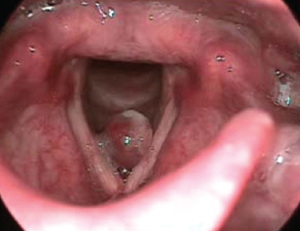SCOTTSDALE—In Triological Society Best Practices articles, published regularly in the Laryngoscope, experts answer clinical questions in just 800 to 1,100 words and are allowed only five references. The idea is to give readers practical clinical guidance in a concise way. The questions are chosen and answered by members of a committee covering all subspecialty areas. During the Triological Society Combined Sections Meeting, held earlier this year, experts brought this popular item to a session room, addressing clinical topics in a manner similar to the journal’s “TRIO Best Practices” feature.
Explore This Issue
May 2018Do All Inferior Turbinate Reduction Techniques Yield Long-Term Results?
Ashutosh Kacker, MD, professor of clinical otolaryngology at Weill Cornell Medical College in New York City, said that the conventional surgical treatments for turbinate reduction—partial or total turbinectomy, turbinoplasty, electrocautery, submucosal resection, and submucosal resection with lateral displacement—all are associated with varying success rates and postoperative issues, including bleeding, crusting, and nasal dryness.
“At this point, either submucosal resection using a debrider or the conventional submucosal resection with lateral displacement have the best long-term results for turbinate reduction,” he said.
In the turbinoplasty category, microdebrider-assisted and ultrasound turbinate reduction have been shown to be most effective at yielding good long-term results, but there is minimal research on the ultrasound approach, so the microdebrider approach has the advantage of familiarity, Dr. Kacker said. “More research needs to be done on (the ultrasound) technique.”
Do All Vocal Fold Polyps Require Surgery?

Right vocal fold polyp
© Biomed Eng Online / National Library of Medicine
David Francis, MD, assistant professor of otolaryngology-head and neck surgery at the University of Wisconsin in Madison, said that while it’s accepted that voice therapy is the first-line treatment for vocal fold nodules, “there’s less consensus regarding vocal fold polyps,” which are rare in the larger landscape of voice problems. But the evidence—and only retrospective case studies are available—suggests that surgery isn’t needed in all cases, he said.
In one study of 42 consecutive patients with translucent, hemorrhagic, or hyaline polyps who underwent voice therapy, 45% improved and didn’t need surgery after eight months of follow-up. The polyps either resolved or became small enough that they weren’t symptomatic anymore. The only predictor of success was whether the polyps were translucent.
Other studies also support the idea that patients’ symptoms often resolve without surgery, indicating that polyps either became smaller or resolved. “Surgery is not necessary for all vocal polyps,” Dr. Francis said. “Small polyps that are more sessile and translucent tend to do better. And a high percentage resolve or shrink due to either voice therapy, vocal hygiene, or time.” But, he added, “Current data do not provide definitive answers because voice therapy is not applied the same across people.” He also pointed out that speech language pathologists specializing in voice are typically concentrated at tertiary academic medical centers and might not be available to all patients.